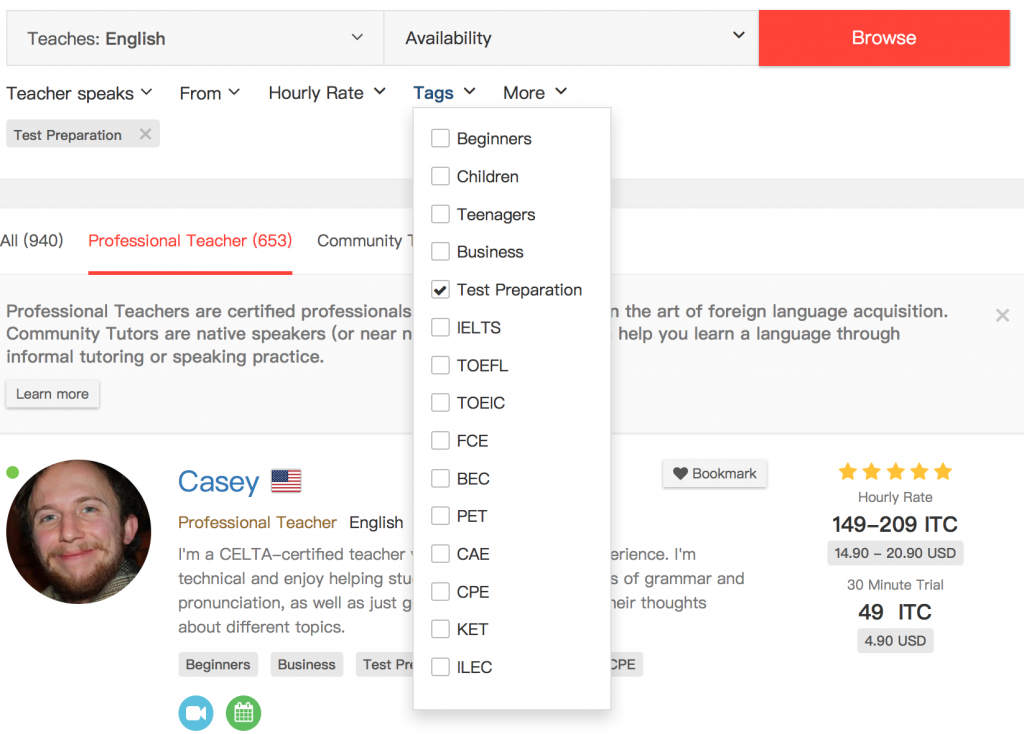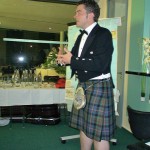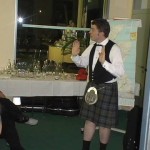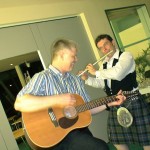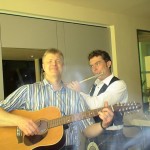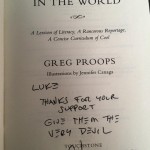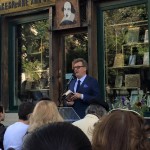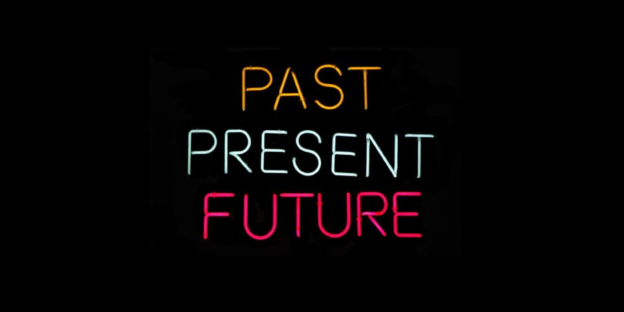Fancy brushing up on some grammar while getting a really good night’s sleep? Yes? Well, this episode is for you. It’s a guided sleep meditation to make you feel all drowsy and relaxed, with added hypnopedia – that’s hypnosis and sleep learning both at the same time. So, kick off your shoes, turn down the lights, lie back, relax and drift off into an ambient dream state, while learning some English in the process. Don’t listen to this while driving. Transcript below. zzzzzzzzzZZZZZzzzzzzZZZZZZzzzzzzz
 [DOWNLOAD]
[DOWNLOAD]
Transcript
Hello everyone, I’m speaking in a slightly different voice today. I’m close to the microphone and I’m speaking a little more softly and calmly than usual. That’s because this episode of LEP is designed to help you fall asleep while listening. Don’t listen to it while driving or operating heavy machinery. If you listen to this carefully, and follow all the instructions I say, then you should be asleep by the end of the episode.
Some people tell me that they listen to LEP while falling asleep. Apparently I’m so boring that it’s the perfect way to help them doze off at night.
I’m just kidding of course, I don’t get that many messages saying that I’m boring, but I know that some people fall asleep while listening to my podcast. I too like to listen to podcasts at night while lying in bed and it’s a lovely experience to drift off while listening to someone’s words.
Something my wife and I have been doing recently, is to find ways to help ourselves go to sleep. Sometimes we feel a bit stressed because of work or whatever and one thing we’ve been doing is to take turns to guide ourselves through a relaxation meditation with the aim of putting each other into a relaxed state that ensures we get a really good night of sleep.
The guided meditation usually involves giving some instructions for relaxation which you both follow step by step. Simply following the instructions allows you to switch off your mind and allow your body to relax fully, and then you drift off into a truly restful and healing slumber.
I find this really helps me, not just to drift off to sleep at night, but also because it relaxes me generally in my life, and the next day I find I have better concentration and sharpness. In fact this kind of relaxation exercise is said to have a cumulative effect. The more you do it, the more relaxed and stress-free you become long term.
Also, there is a theory that you can learn things subconsciously in your sleep. Listening to things while you drift off and while you are in a sleep state has been said to be a good way to internalise information. Is this true? Apparently research on the subject of sleep-learning or hypnopædia have been inconclusive, but studies have shown that the brain does react to stimulation while we are sleeping.
So, what I’m going to do in this episode is to guide you through a relaxation meditation with the aim of helping you to fall into a comfortable deep sleep. Then, once you’re in that sleep state I’m going to read some grammar rules to you. The aim of that is to either a) help you learn the grammatical rules, and b) ensure that you definitely don’t wake up and that you continue to sleep really well.
So this episode is completely devoted to helping you fall asleep. I’m going to try really hard to help you drift off into a state of nourishing and refreshing rest. So, I advise you to listen to this episode while you are lying in bed, or lying on a sofa, prepared to get a really good night’s sleep, somewhere that you can comfortably sleep for a long time. So, not on the bus or train on the way to work, and certainly not while driving. If you have insomnia, this could really help you. Or if you just want to get the full benefit of a good night’s sleep, then this is also for you.
I suggest that this is one of those episodes that you can listen to over and over again, whenever you feel like you want to relax or get a good night of sleep.
However, if you’re driving, operating heavy machinery or simply in charge of a nuclear power station or something I would warn you not to listen to this because, seriously, I’m going to make you fall asleep.
I’m quite serious. I’ve done lots of reading about suggestion and hypnosis techniques, and I am really going to work quite specifically on making you fall asleep in this episode. So, if you are driving a car or doing something that requires you to be fully awake and aware of your surroundings, do not listen to this episode. I must be clear about that – do not listen to this episode while driving. Wait until you are home or in a hotel room, or at work – some place where you don’t need to be fully conscious – then put the headphones on, lie back and drift away…
OK. Are you clear what’s going to happen?
I’ll guide you through various stages of relaxation, and then into a sleep state. We’ll go down down down through various levels of meditation until you are hopefully completely asleep, or at least so relaxed that you can’t be bothered to open your eyes and do something else. Then when you’re down in the deeper relaxation zone, I’ll read some grammar rules to you. From that point I will add some hypnotic suggestions to ensure that when you wake up you’ll be in a fully positive and energised state, ready to take on whatever life throws at you that day. At the end the episode will slowly drift away into silence, letting you continue your sleep until the next morning when you will wake up refreshed and positive. The main thing is this: As long as you follow my guidance step by step, you will be asleep by the end of this episode.
OK. So the first thing is to prepare the environment around you.
Make sure you’re in relaxing surroundings. Ideally you’ll be in a tidy place, not too disorganised and messy. Oh, that’s a pity you seem to be in your home and, well, it’s not very tidy. Perhaps you should stop listening to this and just clean up a bit and then carry on. Ok good, you’re back, and the room is much neater now, well done. Oh, I see that some of you didn’t bother to do any tidying up. Ok that’s your choice. It doesn’t really matter that much anyway. It’s still possible to get the full benefit of this relaxation exercise without being in a tidy place. But really though, you should think about being more hygienic, that’s , well that’s just not very civilised, especially all that stuff in the corner, and the dust. And would it kill you to do a bit of laundry sometimes? Seriously.
Anyway. Make sure the ambient temperature is the room right. Not too warm, not too cold. If you live in a very cold place, you might consider moving to a different country. Somewhere with a better climate. Not England. No, go to the Mediterranean or something. If that’s not practical right now, not to worry. Just put on an extra jumper or get a blanket or something.
Make sure that you’re either sitting in a relaxed position or ideally you’re lying down comfortably. The best is to be in bed, or at least on a bed. Next to the bed, or just near a bed isn’t good enough. To get maximum benefit you need to be actually on or ideally in a bed. Your bed, preferably. Don’t just get into someone else’s bed, especially without their permission. People tend not to like that sort of thing, unless they fancy you and then they might be glad. I’d say, to be on the safe side, it’s better if you stick to your own bed, in order to avoid confusion or at worst, violence and strong language. “What the hell are you doing in my bed?” or “Who are you? Why are you in my house?? Get OUT!” “I’m sorry, I… I’m just listening to LEP – Luke told me to. it’s the sleep episode, I’m, I’m sorry!” That kind of conversation is not conducive to a relaxing night of sleep, so stay in your own bed. That’s the best thing to do.
Don’t forget to take off your shoes. That’s right.
You might want to draw the curtains as well.
No, put the pencil down, I don’t mean that. No, draw the curtains means, close the curtains. Yes, it’s a homonym. Oh you already knew that. Well done. Yes, very clever. Now don’t get cocky alright. Ok.
I’d also suggest that you take your mobile phone and put it on silent, and if possible just turn it off, or even better, just throw it out of the window. You shouldn’t be distracted by it. Statistics have shown that we think about touching or looking at our phone every 2.35 seconds. Don’t ask me where I got that information, because, frankly I just made it up now on the spot. But it doesn’t matter. Don’t be distracted by your phone. Also, don’t be distracted by this episode of the podcast. In fact, it’s probably better to just stop listening, take the headphones out of your ears and do something else. Me talking to you is probably just going to distract you from the relaxation exercise and keep you awake to be honest.
Only joking. Don’t stop listening that would defeat the purpose of this. But do try to reduce the number of distractions that you have around you. Put your phone on silent and put it on the side, out of the way. Obviously if you’re using your phone to listen to this, it’s better if you keep it near you. Turn down the lights. Maybe light a few candles.
OK so now you’ve prepared the room you’re ready to fall asleep.
get into a comfortable position. I quite like lying on my back with my arms and legs spread out like a star fish. Or sometimes I lie in a straight line with my arms by my sides like a penguin, or perhaps curled up like a snake on my side, or just generally spread out along the bed like some sort of slug. Whatever animal you’d like to copy that’s just great. Animals sleep too and that’s the point of this whole exercise after all isn’t it! Yes it is.
So now you’re comfortable, I’ll start leading you through the initial relaxation stage. I hope you’re not too sleepy yet because we haven’t started properly. If you’re already drifting off then perhaps you should get up and have a bit of a walk around the building or drink a black coffee – we haven’t started yet, so wake up a bit, you don’t want to miss the more important bits do you?
OK let’s begin the initial relaxation stage.
The first thing to do is to fully tighten all the muscles in your body. Clench all the muscles together. That’s it. Pull them all tight so you’re stiff like a board. Hold it! Keep holding it!
Oh, wait, ow! I think I’ve got cramp. OW! Cramp, in my foot… hold on…
Sorry about that I got a bit of cramp.
OK, so hold your muscles tight and then gradually relax them all. Not yet! I haven’t said the magic word, which is “release”. So, keep holding, keep those muscles tight! Don’t relax yet I haven’t said “release”. That wasn’t it by the way… Ok keep holding, and then gradually “releeeeeeeease”.
Good.
Let’s do that again. Tighten all your muscles like you’re made of wood or something. Hold them tight, and then gradually, “releeeeeeease”.
Don’t forget to breathe, that’s very important.
You need to breathe in order to supply oxygen to all your vital organs, especially the brain. And you need oxygen in order to be alive. This isn’t going to work if you’re not alive. So breathe.
In fact, let’s concentrate on your breathing.
Take a deep breath through your nose. Breathe deep into your lungs, and then slowly release it through your mouth, like you’re smoking a big spliff with Bob Marley. Gwan take a deep hit o dat sensimelia man, tek it deep into ya lungs rude bwoy, da ‘erb gwan relax ya mind and tek ya into a deep state a meditation and relaxation maaan, rude bwoy bombaclart rasta, jah, ire feelin jah know, I and I know dat all dem yoot are gonna witness the day that babylaaan gwan faaaaalllll.
Sorry, I just went to Jamaica for a moment. Of my own accord.
Anyway, when you breathe deeply, focus on breathing from your diaphragm. That’s a muscle that sits below your lungs, dividing the thorax from the abdomen. Focus on breathing from there, or from your stomach. That’s the key to drawing in the maximum amount of breath into your body. Don’t just let the ribcage rise, focus on letting your stomach swell first, then the ribs. You’ll find you’re pulling more oxygen deep into your lungs that way, and it will relax you more.
Do this a few times. Take a deep breath in, from the diaphragm, through your nose. Then slowly exhale through the mouth.
Deep breath in… exhale through the mouth.
Deep breath in… exhale through the mouth.
Deep breath in… exhale through the mouth.
Now you can continue normal breathing, but for a moment I’d like you to just be aware of the air passing slowly through your nose and then out through your mouth. Don’t force it to go at a particular pace. Just let it happen, being aware of the sensation of the cool air moving in and then out of your face. In, and then out of your face. In, and then out of your face. In and then out again.
Let any thoughts that appear in your mind go by, without attempting to control them or focus on them. Just let your mind be like an open window and the thoughts are like a cool breeze flowing through in a relaxed way. Just observe the feeling of the air passing through your mouth, and the thoughts just drifting through your head, without any need to stop them. Let them continue on their way, just like a breeze through an open window. The window is like your mind. Open, peaceful. There’s blue sky, and the sun is lazily setting in the distance, as the curtains sway in the breeze. They’re slightly old curtains. You’ll need to change them before long.. but never mind that now… just let yourself breathe slowly and allow your mind to wander without feeling the need to control it. Just let yourself go completely…
Now, let’s take you further into a state of relaxation.
*the relaxing every body part bit (even obscure body parts that they might not know, including the area behind the knees that doesn’t really have a name)
Your toenails, your toes, the arch of your foot, your heel, the Achilles heel, your ankle, your uncle, your shins, your calf muscle, your knee cap, your knee in general, the space at the back of your leg behind the knee that nobody has a name for, your thighs, your quadriceps, your groin, your private parts, your bum (both cheeks), the private area of your bum (between the cheeks), your waist, your hips, your navel, your tummy button (the same thing as your navel), your stomach, your abdominal muscles, your solar plexus, your sides, the small of your back, your spine from bottom to top, all your ribs, your chest, your nipples, your arm pits, your shoulder blades, your shoulders in general, your biceps and triceps, your forearms, your wrists, the backs of your hands, the palms of your hands, your knuckles, your fingers, your thumbs, your fingernails, the bits of skin next to your fingernails that you might bite if you get nervous, the cuticles (Those are those bits at the base of your fingernails that women scrape off when they get a manicure), your fingertips, your fingerprints, the back of your neck, your throat, your jaw, your cheeks, your teeth (molars, canines, incisors) your gums, your tongue, your alveolar ridge, your philtrum, your nostrils, the bridge of your nose, the tip of your nose, your nasal hair, your cheekbones, your ears (including your ear lobes and your ear drums) the bit behind your ears that your parents always remind you to wash, your temples, your eyebags, your eyeballs, your eyebrows, your eyelids, your eyelashes, your retinas, your pupils, your optic nerve, your forehead, your monobrow if you’ve got one, your hairline, your scalp, your follicles, your hair, your crown, and last but not least – your brain. It’s all totally relaxed…
* I’d like you to imagine that you are slowly walking down a long corridor towards some steps, and with every step you’re getting more and more sleepy.
* Eventually you walk through a doorway. The door says the word SLEEP on it in blue letters. It’s all fluffy and made of cotton wool. You pass through the door and into the realm of sleep.
*This is where your brain goes when you’re sleeping
*It’s all made of cotton wool clouds under your feet. Everything’s blue and white and smells of fresh blankets.
*Up in the sky you see the clouds twinkling in the distance. It’s a perfectly calm night. Under your feet there are lovely soft blankets, pillows and duvets. You could lie down anywhere and sleep like a baby, but you keep moving, looking for the perfect spot.
*You see some sheep made of cotton wool. “Baaa” one of them says. “Baaa” you say in return. The sheep lazily approach a gate and begin to leap over it, but instead of landing on the other side, these fluffy sheep just continue drifting up into the sky, eventually becoming little fluffy clouds that slowly drift across the night sky into the distance. “Baaa” you hear one go in the distance.
*Every step takes you deeper and deeper into a restful slumber.
*You come across a river – dark, black water. Just going near it makes you drowsy. You lean over to take a drink, and take a couple of drops into your mouth, and slowly you drift off as the water envelopes you, pulling you down into the cool dark waters of deep sleep. As you slowly enter the water each part of you from head to toe enters a deep restful sleep. Under you go, with the lazy fish drifting by, and an old boot on the bottom and a tin can. It’s nice down here, and there’s a blanket which you wrap around you. You can breathe down here. In fact it’s a lot easier to breathe than it was before. Even though you’re safe under the water the air is fresh and healthy, but the water makes you drowsy. There’s a sand bank that looks comfortable with a bunch of clean pillows piled up next to it.
*Next to the sand bank on the bottom the bottom of the river you find a door and you pass through it. It’s wonderfully warm and protective inside. It’s an old school classroom with windows at the top of the walls, and wooden panelling and old wooden desks. The room is surrounded by old radiators that make the room really warm and comfy. All the kids have hung their jackets and coats on the wall and their sitting at their desks, wearing wooden jumpers, shirts and ties. There’s an old man at the front of the school classroom. He invites you to sit. It’s early morning, so early that it’s not light yet and you sit at the old desk. You’re so sleepy that you can hardly stay awake. It’s like when you were a kid and you couldn’t stop falling asleep in those very early morning classes in winter when the room was so warm and you were still sleepy from your night. You sit next to one of the old radiators which keeps your lovely and cosy. It’s safe here. You’re here to learn English from this old man in a tweed suit, with a beard. He looks a bit like god, or father christmas, or the guy at the end of The Matrix Reloaded, or Colonel Sanders from KFC.
He tells you and the other children to take some notes as he reads you some grammar rules. You hold a pencil in your hand and try to write notes in a notebook, but your head is nodding and you just want to lie down on the floor there next to the radiator where it’s lovely and warm, but you can’t. You have to hold this pencil and listen to the wise words of this old teacher. Your eyes are rolling in your head and your head is tipping forwards and backwards as you try to listen to the teacher. The room seems to be spinning. You just want to put your head down and sleep. Your eyes sting, and they feel better when you close them. It would be better if you could just keep your eyes closed and you could just fly away to total peaceful sleep. You manage to look at the other kids. They’re all asleep with their heads on the desks, their eyes firmly closed, breathing deeply. They look so peaceful. You turn your attention to the teacher again and despite your desperate desire to put your head on the table to sleep a sleep of the ancient kings, you try to listen and take notes. This is what the teacher says…
Boring grammar: Relative clauses https://en.wikipedia.org/wiki/Relative_clause
Finally, at the end of the lecture, the teacher says to the class “You may now put down your pencil, put your head on your book, and go to sleep, but make sure your head goes on your book so the words can go in and stay there forever, because every word you have heard in this episode of Luke’s English Podcast, you will remember forever as you sleep, sleep, sleep.
As he’s saying this you manage to look up at the teacher, but he’s sitting back in his chair, his head back, fast asleep and no doubt dreaming of his bed.
Now, finally it’s the time for you to get the rest you desired. You kick off your shoes and curl up on the warm floor next to the radiator. There’s a small mattress and a blanket. It’s so comfortable, better than you ever expected.
And as you feel yourself breathe slowly, and you feel the warmth of the bed you’re lying on, you feel yourself drifting back into a deep sleep again, deeper and deeper, more and more relaxed, and as you listen to these words you know that this is a sleep which will allow you to fully rest, with nothing but slow deep energy growing inside you as you breathe the oxygen in, deeper and deeper, and let it out again without thinking, the fresh air nourishing your warm body as you go further and further into a sleep, and when you wake up in the morning on the other side you will be so refreshed and so healed by this sleep that your brain will be so bright and ready to speak English with total clarity and you’ll remember all the words and all the grammar and all the structures and all the rhythm and all the intonation and pronunciation and vocabulary and expressions will be stored in your mind forever and ever and will always be ready for you to use at any time wherever you are whenever you open the window, and open your mouth and let the words come out like a mountain river on a clear blue day, as the water flows on and on and you sleep steadily, deeper and deeper, longer and longer, letting yourself go further and further into this state of wonderful nourishing and healing sleeeep. Thanks for listening to another episode of Luke’s English Podcast. Good night, and good bye bye bye bye bye!

![]() [DOWNLOAD]
[DOWNLOAD]
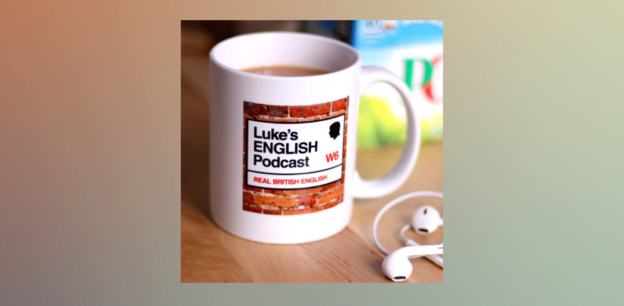
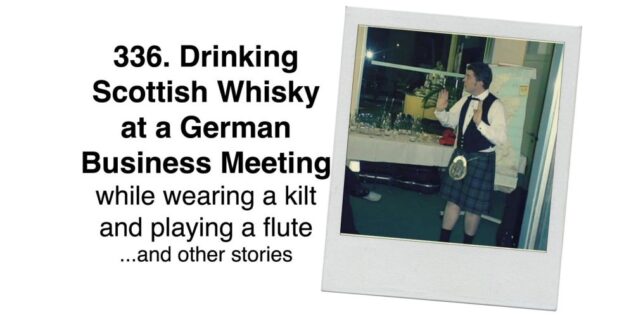
 italki
italki